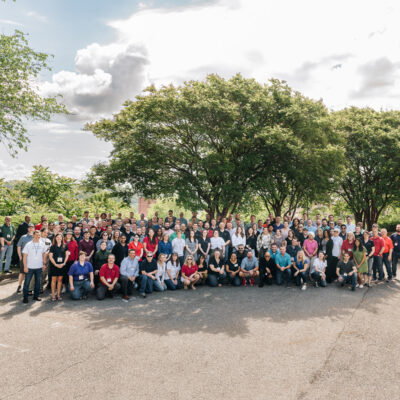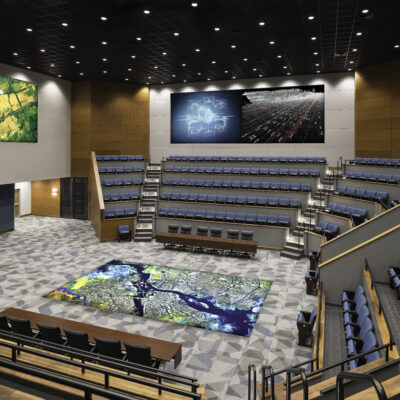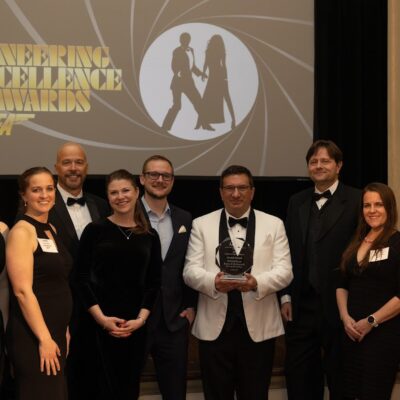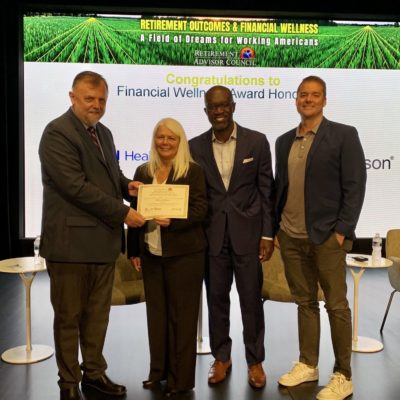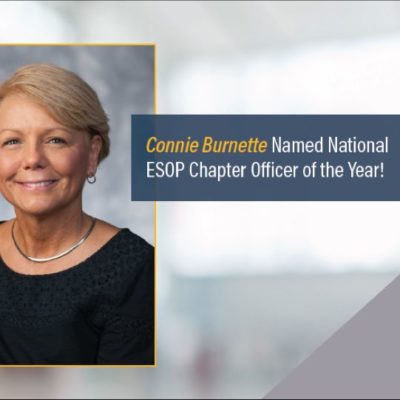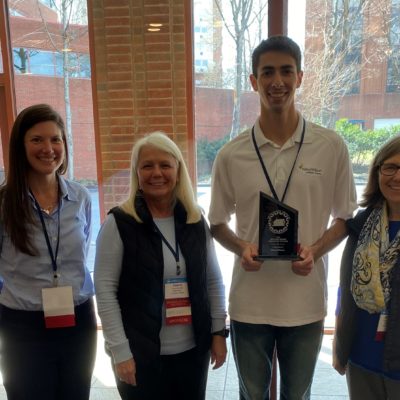Architecture Team Stands Out at AIA VA’s Architecture Exchange East
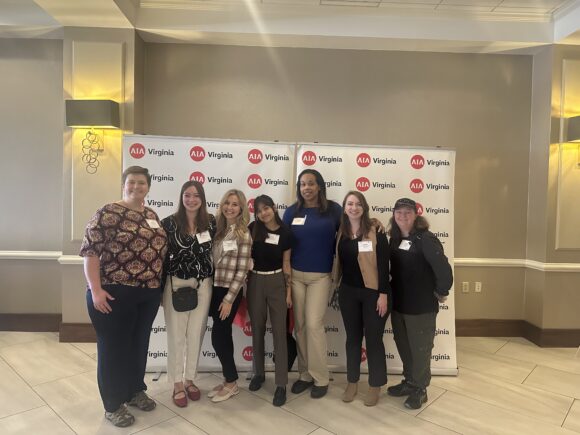
AIA Virginia’s signature event, Architecture Exchange East (ArchEx) drew a big crowd of design professionals and industry leaders — including several Wiley|Wilson employee-owners.
This annual conference offers exclusive educational and networking sessions, and our team took advantage. Along with the chance to learn from and catch up with peers, the event was also an opportunity for a few individuals to show off their expertise.
Jessica Somgynari was a member of the 2024 Emerging Leaders in Architecture (ELA) class. She and members of her class spoke to ArchEx attendees, describing their project in detail: a human-centered toolkit designed to assist in tackling Alexandria’s affordable housing crisis. The toolkit is a comprehensive and accessible resource aimed at empowering residents, policymakers, and developers to collaboratively address housing challenges.
One of the features the class highlighted at ArchEx was the Potomac Yards Master Plan redesign, which serves as a case study demonstrating the toolkit’s application to real-world design challenges. The class explained how different strategies can help overcome barriers like misinformation, lack of buildable land, and displacement concerns.
AIA VA describes ELA as an honors academy that develops future leaders in architecture firms, communities, and the profession with a goal of accelerating the growth of emerging architects and providing the tools and experiences needed to advance their careers and serve society as leaders in the community.
“It was great working toward a main goal with my teammates, while we were all supporting each other in our own journeys of discovering how we wanted to grow as leaders,” Jessica said. “The program also helped me realize there are many ways to lead, and they take on different forms, but are all still valuable. I encourage anyone who may be interested to apply. It’s well worth it!”
Mia Gilliam gave attendees an update on behalf of AIA VA’s Justice, Equity, Diversity, and Inclusion (JEDI) Committee. She currently serves as chair and the group led a panel discussion that focused on “You Don’t Know What You Don’t Know.” The conversation centered around dispelling the myth that DEI is a fad and just a temporary topic. To that point, the panelists explained that disability is a (commonly overlooked) component of DEI but as designers, it’s critical that work be accessible to all ability levels. Other sessions also touched on the accessibility topic, like the “Neurodiversity in Design” session, which explained the importance of ensuring facilities don’t create unnecessary barriers to users.
“Serving on the JEDI Committee has been an eye opening and transformative experience,” Mia added. “One project that I am particularly proud of was our ‘perspectives’ campaign, which was a deliberate push to promote the diversity of our profession on our social media channels. We were able to highlight the immense amount of talent in our Commonwealth that might otherwise be overlooked.”
